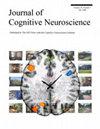我听到的是你吗?扬声器熟悉度调节 18 个月大婴儿词义激活的神经特征
IF 3.1
3区 医学
Q2 NEUROSCIENCES
引用次数: 0
摘要
语言发育研究表明,单语婴儿的词汇-语义组织是在 18 到 24 个月大时形成的。在本研究中,我们旨在探讨语音熟悉程度是否会促进婴儿大脑中的词义激活。我们使用脑电图记录了 18 个月大的学习法语的婴儿在听分类学相关和不相关的口语词对时的大脑活动,其中一个声音是他们在实验前熟悉的,另一个是他们不熟悉的。对相关和不相关目标词的反应进行了 ERP 测量。我们的结果表明,只有熟悉的声音才会在左半球出现 N400 效应(与相关目标词相比,不相关目标词的振幅更大),这表明声音的熟悉程度促进了词汇-语义的激活。对于不熟悉的声音,我们观察到更早的一致性效应(相关目标词的振幅大于不相关目标词的振幅)。这表明,虽然 18 个月大的幼儿会处理来自陌生说话者的词义信息,但他们的词义处理神经特征还不太成熟。我们的研究结果表明,即使与说话者没有个人关系,对声音的熟悉程度也会增强婴儿的词义处理能力。这支持了语外信息在婴儿词义激活中发挥作用的观点。本文章由计算机程序翻译,如有差异,请以英文原文为准。
Is That You I Hear? Speaker Familiarity Modulates Neural Signatures of Lexical-semantic Activation in 18-month-old Infants
Developmental language studies have shown that lexical-semantic organization develops between 18 and 24 months of age in monolingual infants. In the present study, we aimed to examine whether voice familiarity facilitates lexical-semantic activation in the infant brain. We recorded the brain activity of 18-month-old, French-learning infants using EEG while they listened to taxonomically related and unrelated spoken word pairs by one voice with which they were familiarized with before the experiment, and one voice with which they were not familiarized. The ERPs were measured in response to related and unrelated target words. Our results showed an N400 effect (greater amplitudes for unrelated as opposed to related target words) over the left hemisphere, only for the familiar voice, suggesting that the voice familiarity facilitated lexical-semantic activation. For unfamiliar voices, we observed an earlier congruence effect (greater amplitudes for related than for unrelated target words). This suggests that although 18-month-olds process lexical-semantic information from unfamiliar speakers, their neural signatures of lexical-semantic processing are less mature. Our results show that even in the absence of personal relation with a speaker, familiarity with a voice augments infant lexical-semantic processing. This supports the idea that extralinguistic information plays a role in infant lexical-semantic activation.
求助全文
通过发布文献求助,成功后即可免费获取论文全文。
去求助
来源期刊
CiteScore
5.30
自引率
3.10%
发文量
151
审稿时长
3-8 weeks
期刊介绍:
Journal of Cognitive Neuroscience investigates brain–behavior interaction and promotes lively interchange among the mind sciences.

 求助内容:
求助内容: 应助结果提醒方式:
应助结果提醒方式:


